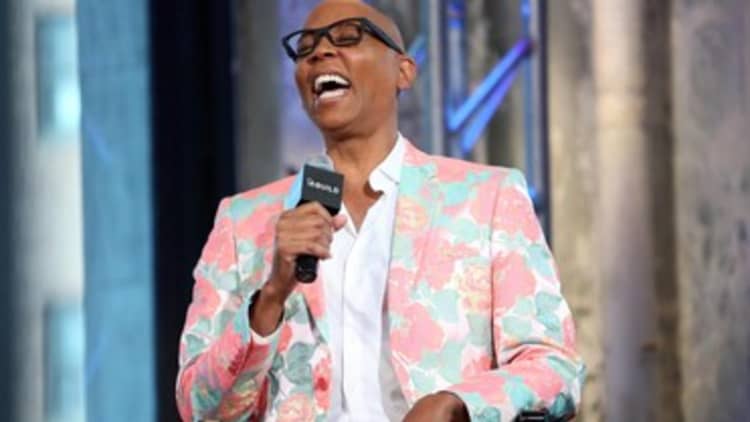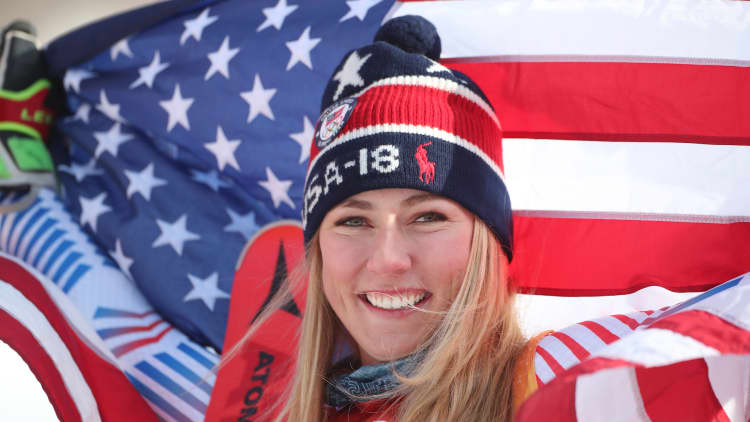Finishing fourth place in the 500-meter speed skating race at a key 2017 world championship competition earned Mitch Whitmore a nine-month stipend to help fund his training and living expenses.
But had he skated half a second faster to finish third, he would have secured a spot on the podium and a monthly stipend that was hundreds of dollars higher, he says.
That would have made a difference. Whitmore and many other Olympians are stretched thin financially, often footing hefty team fees and travel expenses. Meanwhile, a rigorous, full-time training schedule leaves little time for paid work.
NerdWallet talked to winter athletes competing in the 2018 Games in Pyeongchang, South Korea, about what being an Olympian means for their budgets.
More from NerdWallet:
How apprenticeships work and how you can land one
These 9 students customized their journey to a career
Discover student loans review: private loans and refinancing
Income is tied to performance
Whitmore competed in the 2014 Sochi Games and the 2010 Vancouver Games and hopes to win his first Olympic medal in Pyeongchang. This may be his last shot — he's considering leaving the sport after this season because he says it's hard to earn a steady income from speed skating.
He relies on the performance-based stipends from the U.S. Olympic Committee to pay for rent and food, he says. The nine-month stipend amount is based on skaters' placement at one competition from the previous season — the Olympics or World Single Distances Championships, depending on the year.
U.S. skaters who place in the top three in an individual event earn the largest stipend; fourth- through eighth-place finishers earn the second-tier stipend amount; and competitors in ninth through 16th land in the third stipend tier.

This system — determining skaters' stipends based on their performance in a single race — puts extra pressure on athletes like Whitmore, who says his biggest money stressor is making rent.
"You want it to just be about the competition," Whitmore says. "But … you slip, or just have some little thing go wrong, and it's hard to eat for several months."
Local sponsors support the underdogs
The biggest sponsorships often go to the top one or two competitors in each sport. But even athletes who haven't medaled can get sponsored — especially when local businesses take interest.
Take alpine skier Stacey Cook, for example. She has competed in three Olympic Games but has never medaled in one, and is competing at the Pyeongchang Games alongside teammates including Lindsey Vonn, who has two U.S. Olympic medals in the sport and has been sponsored by companies including GoPro and Oakley. Cook is sponsored by Mammoth Mountain Ski Area, her home resort in Mammoth Lakes, California, where she hosts camps, fundraisers and other events.
"It's not just, like, 'Hey, sponsor me because I'm on TV,'" Cook says. "It's, 'Sponsor me because look at the money that I brought you last year in these events and this is what I plan to bring you next year.'"
Kikkan Randall, a five-time Olympic cross-country skier from Alaska, has counted Alaska Seafood, the organization that promotes the state's fresh fish, among national sponsors including L.L. Bean and Kashi.

Side hustles and crowdfunding fill in the gaps
Training for the Olympic circuit is a full-time job, but some athletes make time for part-time gigs. Two-time Olympic cross-country skier Sadie Bjornsen worked as a nanny early in her professional skiing career. First-time Olympian in bobsled Chris Kinney works remotely in a social media and marketing role for the Industrial Scaffolding Committee, an organization that provides training and certification for industrial builders.
Freestyle skier Jaelin Kauf has cleaned houses and bused restaurant tables. She also raised more than $6,650 on the athlete crowdfunding site RallyMe, according to her public campaigns on the site.
Kauf isn't alone — the U.S. ski, freeskiing and snowboarding teams recently raised more than $58,000 to support athletes on the road to Pyeongchang. And more than 1,000 campaigns come up on crowdfunding site GoFundMe when you search "2018 Olympics."
The payoff
The best athletes get even more sponsorship after the Olympics — think Wheaties box placements. And Olympic medalists win prize money from the U.S. Olympic Committee. At the 2018 Games, U.S. athletes will earn $37,500 for each gold medal, $22,500 for each silver and $15,000 for each bronze — a 50 percent increase from what winning athletes earned at the 2016 Summer Games in Rio de Janeiro.
Unlike in previous years, U.S. athletes won't be taxed on the value of their medals if their adjusted gross income is $1 million or less ($500,000 or less if they're married filing separately).
But for most athletes, competing isn't about the money. It's about pushing the limits of their bodies and of their sports — the same things that enthrall viewers every Olympic Games.
Like this story? Like CNBC Make It on Facebook!
Don't miss: Self-made millionaire Barbara Corcoran: If your kids have this trait, they'll be successful
This article originally appeared on NerdWallet.
Disclosure: CNBC parent NBCUniversal owns NBC Sports and NBC Olympics. NBC Olympics is the U.S. broadcast rights holder to all Summer and Winter Games through the year 2032.



